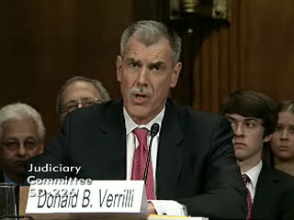
Are faith-based organizations due religious freedom?
The federal government has created a three-tier religious freedom system as part of the HHS contraceptives mandate. Churches are fully religious and exempt. Businesses are fully secular and not exempt. Faith-based organizations get an “accommodation”–but what does that say about their religious character?
In a recent op-ed in USA Today, Scott Ward and Patrick Purtill (Gammon and Grange law firm for nonprofits) wrote the following, reflecting on the federal government’s position as argued before the US Supreme Court in the Hobby Lobby and Conestoga Woods cases:
“In his argument, Solicitor General Verrilli made it clear, repeatedly, that the government believes for-profit corporations do not have constitutional or statutory rights to protection of their religious exercise. The government seems to believe the same regarding religious nonprofit corporations. While grudgingly recognizing that churches are entitled to an ‘exemption’ from the contraceptives mandate, HHS granted religious nonprofit corporations an ‘accommodation’ instead.
“The distinction is critical: an exemption is a right, an accommodation is only a dispensation. It’s a point the government understands perfectly. During 45 minutes of intense argument, Verrilli consistently refused to admit that the ‘accommodation’ was compelled by the First Amendment or by the Religious Freedom Restoration Act. It is simply government beneficence. As such, it can be taken away.”
That’s chilling. At least for now, and at least in the case of this HHS requirement, our federal government does not regard faith-based organizations to be authentic or true “religious organizations,” organizations that by constitutional requirement have religious freedom rights. As if faith-based service organizations were not a key means by which religious people and communities put their religious convictions into practice in serving their constituents and neighbors.
